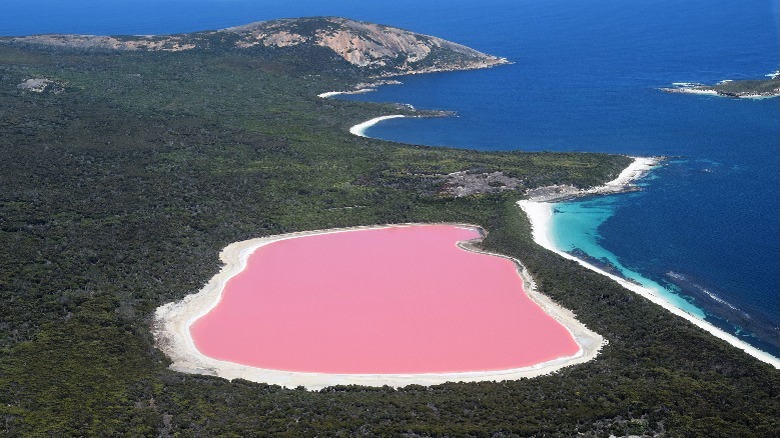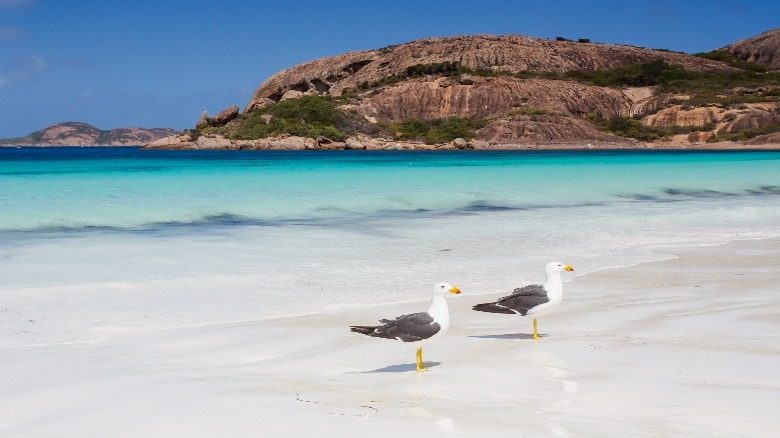Lucky by name, lucky by nature
For one thing, this beach has form when it comes to luck. It earned its name back in the early 1800’s when an English navigator named Matthew Flinders brought his ship into the bay to shelter from a summer storm. In tribute to this good fortune, he named it Lucky Bay. As it happened, the area would prove fortuitous in another way, too. Also aboard the vessel was the botanist Robert Brown who went on to discover many new plant species here — and this event is now commemorated on a plaque at the eastern end of the bay.
Today, the beach has another claim to fame as well. According to Tourism Western Australia, Lucky Bay is the whitest beach in the country, thanks to its dazzling sand. Then there’s those dreamy waters of the Indian Ocean, where you can swim, canoe, and kayak, or otherwise snorkel amid the marine life. There’s even the chance to spot migrating whales, if you’re here between July and October, and dolphins frequent the bay, too.
That said, for fun on the beach, the best time to visit this stunning shoreline is from mid-December to late March when summer is in full swing. And what of those kangaroos we mentioned? Well, if you want to spot these mild-mannered marsupials, who are pretty tame here, it’s best to go early in the morning or evening. Usually, kangaroos are nocturnal, even if these guys don’t always stick to a regular schedule!
What else can you see and do in Lucky Bay?

Aside from the beach, there is the wider landscape of the Cape Le Grand National Park to explore with its rolling heathlands, wildflowers, and beautiful walks. The most ambitious of these, “Le Grand Coastal Trail,” takes you from bay to bay, enjoying some stunning scenery along the way. There’s also an unusual blancmange-pink lake in the park (yes, really), Lake Hillier, which is caused by a mix of algae, halobacteria, and other microbes. The other great thing about this park is that you can camp close to the beach, too, under some seriously starry skies.
In fact, the only downside of a visit to Lucky Bay is that it’s not exactly the most accessible place in the world. To get to Esperance, you are looking at an eight-hour drive from Perth or, otherwise, a one-and-a-half-hour flight. Then from Esperance itself, Lucky Bay is still a 45-minute drive. Oh, and it’s worth noting that the national park has an entry fee of $8 to $15 per standard vehicle, too.
Incidentally, coming in at second and third place on the best-beach list were Anse Source d’Argent in the Seychelles and Hidden Beach in the Philippines respectively. Both of these are an absolute delight, too, depending on where you are in the world. But if you are lucky enough (see what we did there?) to be in Western Australia any time soon, you’ll definitely feel you’ve hit the jackpot at Lucky Bay.

